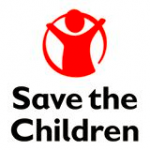
Save the Children International
Re-advertised
Terms of Reference for the End Line Evaluation for
“Early Childhood Care, Development & Education (ECCDE)” Project to be conducted in Western Province
1. Background and Context
Save the Children is the world’s leading independent organization for children. Our Vision is a world in which every child attains the right to survival, protection, development and participation. Save the Children (SC) has worked in Zambia to promote the fulfillment of children’s rights since 1987. Save the Children works across five thematic areas namely education, health & nutrition, child rights governance, child poverty and child protection.
Save the Children Zambia, with support from Save the Children Italy is implementing a 3- year project called “Early Childhood Care, Development & Education (ECCDE)” The project is aimed at improving access to and quality of ECCDE services for children aged 3-6 in five districts of Western Province.
With the core aim of improving access to ECCDE services, the project endeavoured to promote an integrated multi sectoral approach taking into account child protection and school health and nutrition in the implementation of ECCDE interventions.
As the project comes to an end in December 2018, Save the Children seeks to engage a consultant to carry out an end line evaluation.
2. Overall objective of the project
Improve the learning outcomes of the children aged between 3-6 years in Integrated Early Childhood Care Development and Education (ECCDE) services in Zambia.
3. Specific Objectives
- To improve access to and quality of inclusive ECCDE centres in Western Province
- To strengthen the National, provincial and district capacity and implementation on inclusive ECCDE
4. Target group
- Standard Officers, School Managers, Grade One Teachers, Parents and Teachers Associations (PTAs), volunteer care givers, parents, general communities and children with vulnerabilities, disabilities and/or education needs in the targeted districts in Western Province
5. Expected Results for the project
- Result 1: Learning environment in ECCDE centres improved
- Result 2: Capacity of caregivers, MOGE, teachers and communities to manage, deliver and monitor ECCDE and special educational services is enhanced
- Result 3: Demand for inclusive ECCDE is increased through awareness raising in 13 ECCDE centres
- Result 4: Child protection and health and nutrition services are mainstreamed within all ECCDE centres
6. Purpose of the end-line evaluation
The end-line evaluation is intended to evaluate the project’s outcome, sustainability and possible future impact by comparing end of project data after the three years of implementation with baseline information. The evaluation also intends to capture effectively lessons learnt and provide information on the nature and extent where possible. The evaluation will be encored in the five OECD/DAC evaluation criteria of Relevance, Effectiveness, Efficiency, Impact and Sustainability while considering the cross-cutting issue of gender.
The study will, among other things, establish:
1. The degree to which the project contributed to key education and children’s developmental outcome indicators as well as to school-based statistics such as access, participation, quality, efficiency and progression/transition ECCDE as enshrined in the project document using appropriate assessment methods e.g. IDELA, EGMA and EGRA
2. Establish project contribution to the quality learning environment of ECCDE services for children aged 3-6 in the projects impact area;
3. Establish project contribution to the enhancement of inclusive education for ECCDE services, specifically looking at identification and support of children with learning difficulties or disabilities;
4. Establish projects efforts in mainstreaming child protection and school health and nutrition within the ECCDE systems and examining the extent to which the two approaches have contributed to enrolments and attendance in ECCDE centres; and
5. Assess how the project contributed to the strengthening of national, provincial and district capacity and implementation on ECCDE services. This will also include examining how capacity was built at community level and determining to what level was the community involved in the management of ECCDE services
7. Scope and methodology of the End-line Evaluation
The consultants will be expected to sample 6 schools out of 13 target schools in the 5 districts to collect information. The consultant will develop a detailed methodology and relevant tools in consultation with Save the Children and Ministry of General Education.
The baseline survey will include the following methodology
- Primary data collection should include variety of methods consisting of both quantitative and qualitative techniques and tools. Participatory approaches with the involvement of project stakeholders will be expected
- Review of relevant documents (Demographic Health Survey, SC MEAL frameworks and baseline studies, quality learning environment (QLE) surveys and project documents)
- Conduct interviews and focus group discussions with key informants, community members, children that benefited from the project and other relevant stakeholders.
- Appropriate Statistical analysis package will be used for data analysis, but it is a requirement to use T-tests to emphasise significance of quantitative results for children learning outcome when comparing intervention and non-intervention groups.
- The analysis of findings should also consider comparing findings between boys and girls
Ethical considerations regarding data collection, including confidentiality, Do No Harm approaches and promotion of voluntary participation must be clearly highlighted in the methodology. Planning should take into consideration Ethical Checking Requirements in country.
8. Key deliverables of the consultancy
- Provide inception report, outlining the key scope of the work and intended work plan of the analysis, and evaluation questions, shall be submitted after 5 days of commencing the consultancy.
- Develop data collection tools
- Collect and analyse data
- Present a preliminary report to Save the Children for review.
- Incorporate comments and feedback from Save the Children
- Finalize and present an evaluation report
- Submit final report x 3 hard copies and soft copy
- Produce a research brief/Summary
- Present the evaluation findings at a learning event
- Share raw data in soft copy with Save the Children
NOTE: The Final Report: This will be submitted within 10 days after receiving comments from Save the Children. The content and structure of the final analytical report with findings, recommendations and lessons learnt covering the scope of the evaluation should meet the requirements of SC quality evaluation criteria and should include the following:- Executive summary (1-2 pages) -Introduction (1 page) -Description of the evaluation methodology (6 pages) – Situational analysis with regard to the outcome, outputs, and partnership strategy (6-7 pages) – Analysis of opportunities to provide guidance for future programming (3-4 pages) – Key findings, including best practices and lessons learned (4-5 pages) -Conclusions and recommendations (4-5 pages) – Appendices: Charts, terms of reference, field visits, people interviewed, documents reviewed.
The consultant is expected to deliver within the agreed timeline on all the tasks for comments and feedback.
9. Study proposed timelines and costs
The consultancy is expected to start on 1st November, 2018 and be completed on 30th November, 2018.
The consultant should propose the cost of undertaking a study, this should be part of the submitted proposal and will be reviewed and agreed upon with Save the Children.
10. Required profile of the consultant/team
The consultant/team must demonstrate the following qualifications in order to be eligible for this assignment:
- University degree in public health, Demography, Education or related social science -Masters’ level is added advantage
- Minimum of 5-10 years’ experience in high level studies especially education research
- Previous experience of working with children, using participatory child-friendly assessment/research/evaluation methodologies in education such as IDELA, AGRA and AGMA.
- Previous experience of engaging civil society organisations, national partners and key government staff in the development and implementation of assessments/evaluations.
- Evidence of having done similar work within Zambia especially in set ups as the project area (Rural areas)
- A demonstrated high level of professionalism and an ability to work independently and in high‐pressure situations under tight deadlines.
- High proficiency in written and spoken in English
- Strong interpersonal and communication skills including experience of working within multi-cultural teams.
The consultant/team must ensure a gender mix in the evaluation team.
11. Procedures of application and documentation
Expressions of interest must include a CV of the applicant and CVs of Team, summary of relevant experience to the assignment, three referees with clear contact details (e-mail and cell phone), Concept paper (maximum 6 pages) with methodology, description of tools, method of analysis, work plan and budget in relation to the assignment. Applications should be delivered not later than 22nd October, 2018 before 17:00 hours to the address below. Only shortlisted candidates will be contacted. Please note that applications should be submitted in hard copies, clearly marked on the envelope “Early Childhood Care, Development & Education (ECCDE) End-line Evaluation”.
The Human Resources & Administration Manager, Save the Children, Plot No. 16794, Diplomatic Centre, Mass Media, Post net 487, P/Bag E891, Lusaka, Zambia

